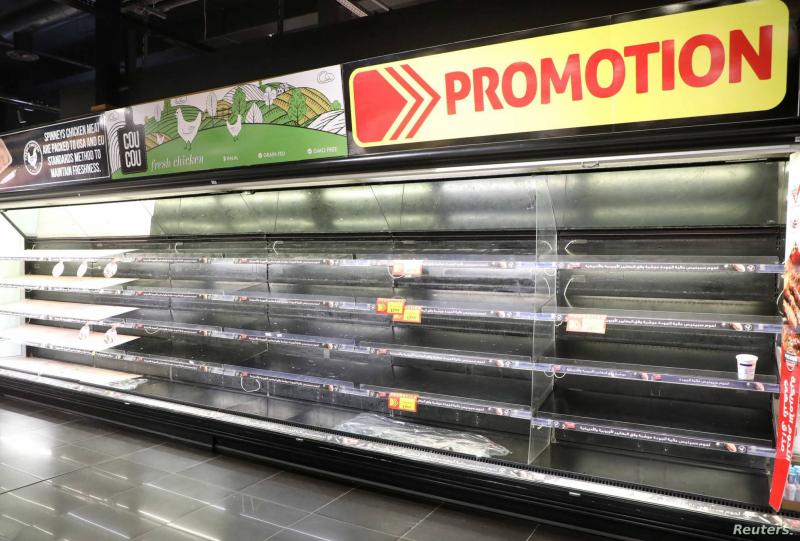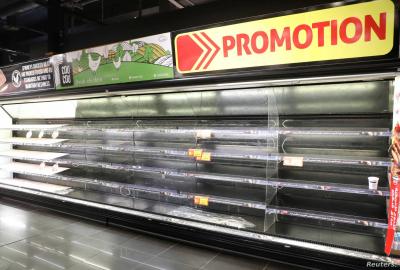The head of the Executive Council in "Hezbollah," Sayyid Hashem Safi al-Din, emphasized that "every day we are reassured that in the electoral process and beyond, it is impossible for those who have experienced resistance and know its cause—who have provided martyrs for it and recognized its truth and the truth of its leadership—to abandon it. Our people will once again prove that their permanent choice is resistance and defending it."
Safi al-Din's remarks came during his patronage of the book signing event for the novel "He Said It Mahmoud," honoring the party martyr Mahmoud Tawfiq Deb, at the Sayyida Zahra Mosque in the town of Mays al-Jabal, in the presence of MP Hassan Fadlallah, the head of Hezbollah's Southern Region, Abdullah Nasser, as well as numerous scholars, officials, media, social and cultural figures, local and educational leaders, and a gathering of residents.
He stated: "It is true that America is exerting pressure, but it is more accurate to say that the ones who opened the doors wide for the Americans are some elements within who are connected to the Americans and share their ideas and goals, or some cowardly and fearful individuals of America, more than they fear their own people."
He pointed out that "Lebanon is experiencing a suffocating crisis in terms of the lack of fuel, which, if available, is at very high prices, and there is also no electricity or water. Thus, the real danger now concerns food security, such as wheat and essential needs like medicine. This is a problem around the world, not just in Lebanon. Added to the global issue is Lebanon's ongoing problem, where it endures the current predicament that presses on all Lebanese, while the government is, for various reasons, struggling to address the economic issue. Any solutions, if any are found theoretically, will require time."
He clarified that "when the Iranian offer comes to provide electricity to Lebanon with significant facilitations, and to provide aid without Iran asking for anything politically in return, and yet some officials, contrary to the people's and the state's interest, refuse this offer while accepting to remain in darkness, failure, weakness, and humiliation, it means that some in Lebanon fear America. Therefore, all those who rejected the Iranian offer to secure electricity and assist with food supplies are the primary and direct responsible parties for everything that Lebanese people are suffering today."
He added: "Unfortunately, it seems that some Lebanese have not yet realized the scale of the disaster facing Lebanon. We should frankly tell the Lebanese that Lebanon is heading towards a social, humanitarian, and life catastrophe in every dimension; this requires mobilization, bold interaction, courageous positions, and a reevaluation of previous stances and decisions. However, it seems that some in Lebanon still do not grasp the nature of this problem."
He observed that "those who do not recognize the current food disaster in Lebanon are not only lost in the elections, slogans, dreams, and promises from abroad but are often incompetent. We have a political class that does not understand nor is capable of grasping the magnitude of the dangers looming over us. They cannot be relied upon, and if they continue on this path, they will ultimately face repercussions in elections and politics, as their positions belong to a bygone era."
He stressed that "the world has changed today, the data has shifted, the region has transformed, and the equations in the world are changing. Lebanon will definitely be affected by everything happening in the world, and it has already been influenced by everything that has occurred in the region. Therefore, we have been and will remain confident that those who write Lebanon's future amid global, international, and regional changes are the strong, not the weak. The weak have no place in regional equations, nor in international equations, nor do they hold any future. Those who still follow the orders of foreign powers should realize that the outside world they depend on will reach a point where it tells them it can do nothing at all."
He stated: "The Israeli enemy is not waging war on Lebanon today because it lacks assurance over the outcome; it has become desperate at the prospect of eliminating this resistance, which is in no danger whatsoever. Some are conspiring and plotting, coming up with new projects through politics, media, pressure, and blockade, to tire the people, so they groan, weaken, retreat, and shake off their support for the resistance and its path. However, those people who have given their children as martyrs, who stood firm and patient throughout all past wars, and who stood tall like a mighty mountain in 2006, filled with insight, culture, awareness, and faith in the Syrian war, will never abandon the resistance in any season or occasion."
Safi al-Din concluded: "The reasons that gathered to establish this resistance and its emergence and victories, God willed for it to serve a great cause and a monumental achievement, and to contribute to victories that history will write as having been realized by those martyrs and fighters chosen by God, who only faced an enemy and defeated it."




